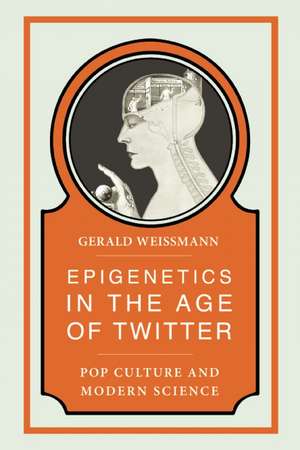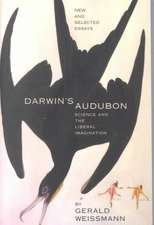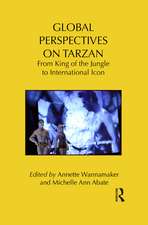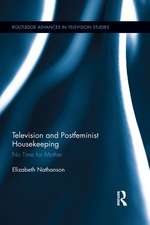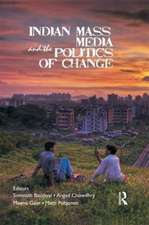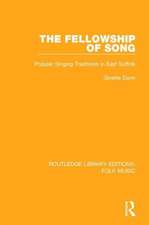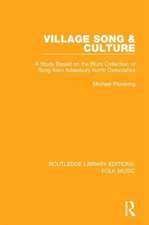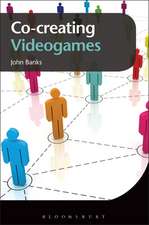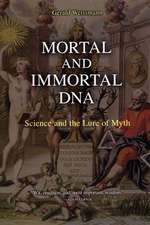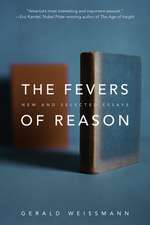Epigenetics in the Age of Twitter: Pop Culture and Modern Science
Autor Gerald Weissmannen Limba Engleză Paperback – 29 feb 2012
Pop culture meets cutting-edge science in this one-volume introduction to the history of science and modern biology.
“[Weissmann] has emerged in the last three decades as America’s most interesting and important essayist. He has achieved this status both epigenetically and through Twitter, word of mouth, so to speak. . . . Much like Susan Sontag, Weissmann likes being a contemporary, and does not feel shackled by tradition. . . . This book is a joy for the heart and instructive for the mind.” —ERIC KANDEL, Nobel Laureate and author of In Search of Memory
“Only a mind as nimble and well traveled as Gerald Weissmann’s could see, never mind make and expound on, the connections between salamanders and Prohibition . . . white blood cells, Hollywood and erectile dysfunction . . . health care reform and Marie Antoinette . . . bacteria, the Equal Rights Amendment and the “Miracle on the Hudson.” Better yet, Weissmann does so with wit and insight. A fascinating tour through history, science and pop culture.” —MAX GOMEZ, MD, Emmy Award-winning WCBS-TV Medical Correspondent
“Erudite energy leaps from this lively commingling of art, culture and science. . . . In each [essay], Weissmann finds links between research and elements of history and pop culture, which play off each other to illuminating effect. So US politician Sarah Palin pops up in a discussion of ‘Marie Antoinette syndrome’. . . and the ‘meltdown’ of the mythical Icarus meets the nuclear version at the Fukushima Daiichi power plant in Japan.” —Nature
Epigenetics, which attempts to explain how our genes respond to our environment, is the latest twist on the historic nature vs. nurture debate. In addressing this and other controversies in contemporary science, Gerald Weissmann taps what he calls “the social network of Western Civilization,” including the many neglected women of science: from the martyred Hypatia of Alexandria, the first woman scientist, to the Nobel laureates Marie Curie, Christiane Nüsslein-Volhard, and Elizabeth Blackburn, among other luminaries in the field. Always instructive and often hilarious, this is a one-volume introduction to modern biology, viewed through the lens of today’s mass media and the longer historical tradition of the Scientific Revolution. Whether engaging in the healthcare debate or imagining the future prose styling of the scientific research paper in the age of Twitter, Weissmann proves to be one of our most incisive cultural critics and satirists.
Gerald Weissmann is director of the Biotechnology Study Center at the New York University School of Medicine and editor-in-chief of the FASEB Journal. His essays and reviews have appeared in numerous publications worldwide, including the London Review of Books and New York Times Book Review.
“[Weissmann] has emerged in the last three decades as America’s most interesting and important essayist. He has achieved this status both epigenetically and through Twitter, word of mouth, so to speak. . . . Much like Susan Sontag, Weissmann likes being a contemporary, and does not feel shackled by tradition. . . . This book is a joy for the heart and instructive for the mind.” —ERIC KANDEL, Nobel Laureate and author of In Search of Memory
“Only a mind as nimble and well traveled as Gerald Weissmann’s could see, never mind make and expound on, the connections between salamanders and Prohibition . . . white blood cells, Hollywood and erectile dysfunction . . . health care reform and Marie Antoinette . . . bacteria, the Equal Rights Amendment and the “Miracle on the Hudson.” Better yet, Weissmann does so with wit and insight. A fascinating tour through history, science and pop culture.” —MAX GOMEZ, MD, Emmy Award-winning WCBS-TV Medical Correspondent
“Erudite energy leaps from this lively commingling of art, culture and science. . . . In each [essay], Weissmann finds links between research and elements of history and pop culture, which play off each other to illuminating effect. So US politician Sarah Palin pops up in a discussion of ‘Marie Antoinette syndrome’. . . and the ‘meltdown’ of the mythical Icarus meets the nuclear version at the Fukushima Daiichi power plant in Japan.” —Nature
Epigenetics, which attempts to explain how our genes respond to our environment, is the latest twist on the historic nature vs. nurture debate. In addressing this and other controversies in contemporary science, Gerald Weissmann taps what he calls “the social network of Western Civilization,” including the many neglected women of science: from the martyred Hypatia of Alexandria, the first woman scientist, to the Nobel laureates Marie Curie, Christiane Nüsslein-Volhard, and Elizabeth Blackburn, among other luminaries in the field. Always instructive and often hilarious, this is a one-volume introduction to modern biology, viewed through the lens of today’s mass media and the longer historical tradition of the Scientific Revolution. Whether engaging in the healthcare debate or imagining the future prose styling of the scientific research paper in the age of Twitter, Weissmann proves to be one of our most incisive cultural critics and satirists.
Gerald Weissmann is director of the Biotechnology Study Center at the New York University School of Medicine and editor-in-chief of the FASEB Journal. His essays and reviews have appeared in numerous publications worldwide, including the London Review of Books and New York Times Book Review.
Preț: 111.14 lei
Nou
Puncte Express: 167
Preț estimativ în valută:
21.27€ • 22.12$ • 17.56£
21.27€ • 22.12$ • 17.56£
Carte disponibilă
Livrare economică 25 martie-08 aprilie
Preluare comenzi: 021 569.72.76
Specificații
ISBN-13: 9781934137390
ISBN-10: 1934137391
Pagini: 256
Dimensiuni: 150 x 226 x 23 mm
Greutate: 0.36 kg
Editura: Bellevue Literary Press
ISBN-10: 1934137391
Pagini: 256
Dimensiuni: 150 x 226 x 23 mm
Greutate: 0.36 kg
Editura: Bellevue Literary Press
Notă biografică
Gerald Weissmann is Emeritus Professor of Medicine (Rheumatology), Research Professor of Medicine, and Director of the Biotechnology Study Center at the New York University School of Medicine. He is also Editor-in-Chief of The FASEB Journal. In 2002, he was elected to Galileo’s Accademia Nazionale dei Lincei of Rome (1603), the world’s oldest scholarly society. He is a Master and past president of the American College of Rheumatology, a past president of the Harvey Society, a Fellow of the AAAS and of the New York Academy of Medicine. He is on the board of the New York Academy of Sciences, a trustee of the Marine Biological Laboratory, Woods Hole, MA and on the Advisory Board of the Ellison Medical Foundation. He is chairman of the jury for the Prix Galien USA, an award that has been called the “Nobel Prize of Pharmaceuticals.” A member of PEN, his essays and reviews of cultural history have been published in The New Republic, The London Review of Books and The New York Times Book Review and have been collected in eight volumes from The Woods Hole Cantata (1985) to Mortal and Immortal DNA: Science and the Lure of Myth (2009).
Descriere
Pop culture meets cutting-edge science in this one-volume introduction to the history of science and modern biology.
